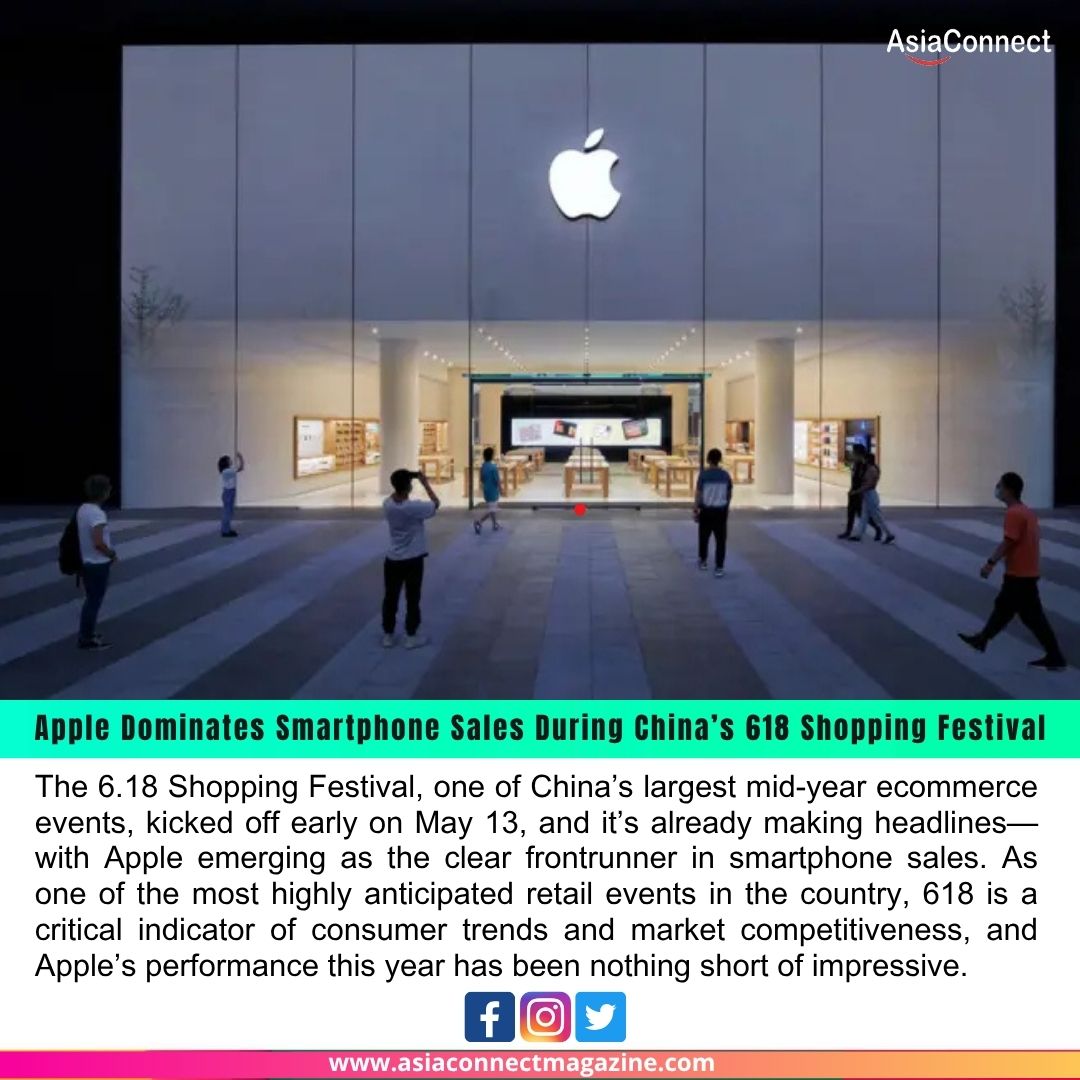The 6.18 Shopping Festival, one of China’s largest mid-year ecommerce events, kicked off early on May 13, and it’s already making headlines—with Apple emerging as the clear frontrunner in smartphone sales. As one of the most highly anticipated retail events in the country, 618 is a critical indicator of consumer trends and market competitiveness, and Apple’s performance this year has been nothing short of impressive.
Traditionally initiated by Chinese ecommerce giant JD.com, the 618 Festival has expanded into a nationwide event embraced by nearly all major online platforms, including Alibaba’s Tmall and Pinduoduo. The event is second only to the Singles’ Day (11.11) shopping festival in terms of scale and consumer engagement, and it has become a key battleground for brands seeking to capture the attention—and wallets—of Chinese consumers.
Apple’s dominance in this year’s festival is a strong signal of its enduring appeal in China, a market that has historically been both highly competitive and unpredictable. Despite rising competition from local brands like Huawei, Xiaomi, and Honor, Apple has continued to hold its ground through a combination of strategic pricing, strong brand loyalty, and high-quality product offerings. According to early sales data, Apple led the smartphone category in both units sold and overall revenue across major ecommerce platforms during the early stages of the event.
Several factors contributed to Apple’s strong performance. First, aggressive promotions and discounts on popular models like the iPhone 15 series helped attract value-conscious consumers. Apple rarely offers significant discounts, so even modest price cuts during shopping festivals are seen as major incentives. Additionally, the brand’s consistent investment in ecosystem integration—linking iPhones with other Apple products and services—continues to strengthen customer loyalty.
China remains one of Apple’s most important markets globally, and its success during 618 reinforces the company’s competitive positioning despite broader economic uncertainties. The Chinese smartphone market has seen declining shipments over the past year, with consumers becoming more selective about their purchases. Apple’s ability to not only maintain but grow its market share in this climate speaks volumes about its strategic approach.
On the flip side, domestic brands are also showing resilience, with Huawei making a notable comeback thanks to its new 5G-capable models and patriotic consumer sentiment. However, the early lead taken by Apple shows that international brands can still thrive in the Chinese market when they align with local preferences and deliver perceived value.
As the 618 Festival continues through June 18, all eyes will remain on the ecommerce charts to see whether Apple can maintain its lead or if local brands will close the gap in the final days. Regardless of the outcome, the early success highlights Apple’s strength in adapting to local dynamics and reaffirms its place as a dominant force in China’s premium smartphone market.
In a market as fast-paced and competitive as China, winning the 618 Festival isn’t just about sales—it’s about influence. And for now, Apple is clearly leading the conversation.





